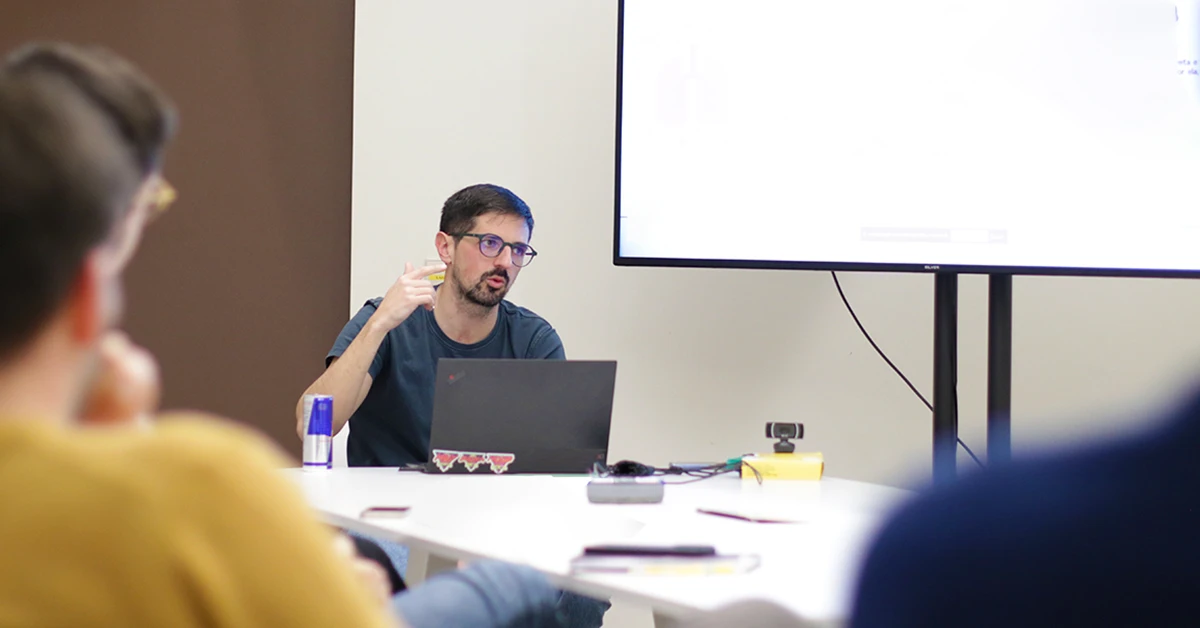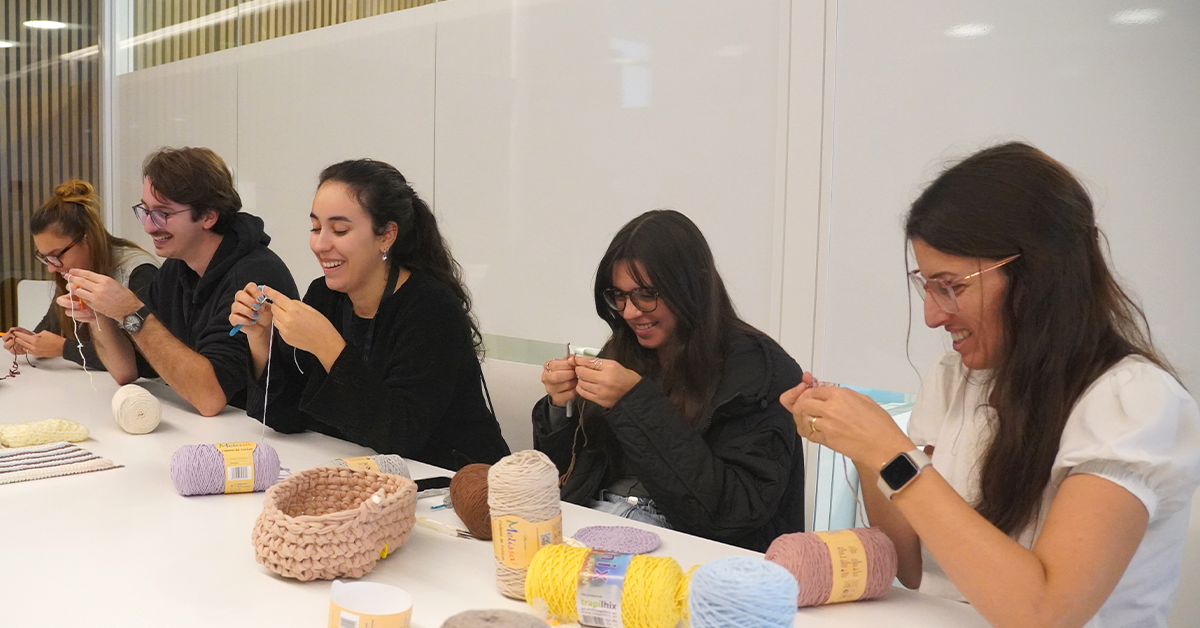Psychosocial Risks at Work
Have you ever heard about psychosocial risks at work? If the concept is strange to you, we will explain in two articles dedicated to this topic why we must monitor the possible negative consequences of our daily routine at work constantly. Let’s start the first part of this content!
Psychosocial risks at work: learn how to detect them
Whether you follow a presential, hybrid or remote work model, it’s inevitable to feel any negative effect from the work routine. Sometimes, people tend to feel more stressed, uninspired or even exhausted. But is this normal?
Any work includes pressure, independently of the area involved. This pressure can be positive for specific scenarios, but in other cases, it can produce a negative impact on the daily performance at work.
The negative effects included in the work routine can harm mental or physical health when extended for several months. Tiago Gomes, psychologist and People Partner at Fabamaq, explains that “Feeling constantly tired is never a good signal. It’s not normal to feel high energy levels all the time. There is a boundary separating occasional fatigue from systematic exhaustion that we feel every day and limits our ability to perform our work”.
What are psychosocial risks at work?
In 2013, the European Agency for Safety and Health at Work (EU-OSHA) made a poll to understand the European citizens' opinion regarding pressure at work. This process concluded that half of the workers participating in the study classified work stress as “normal”.
However, the psychosocial risks emerging in the work context can have psychological, physical and social negative effects on the individual. According to Tiago Gomes, “any person who is dealing with work routines is exposed to risky situations, independently of the area of the company or the position occupied (CEO, manager or contributor)”.
What factors contribute to psychosocial risks?
Various reasons inside a company can compromise the mental health of its workers. The loss of mental or emotional vitality can be associated with the following situations:
Lack of integration in the team or company culture;
Insecurity or lack of definition in the tasks to perform;
Lack of participation in decisions that impact directly the worker;
Lack of autonomy in the tasks;
Lack of control in the way of executing the tasks;
Poor leadership and contradictory guidelines;
High and disproportionate workload;
Career stagnation and low social value of the work developed;
Underuse of skills;
Insufficient resources;
Poor work conditions: noise, smoke, disproportionate temperatures, lack of natural light...;
Moral and sexual harassment (in more serious situations).
What are the impacts of psychosocial risks?
It’s important to understand that exposure to psychosocial risks produces complex effects that vary from person to person. Each human being has different tools and mechanisms to deal with stressful situations.
Monitoring the psychosocial risks is fundamental to identify when we are being impacted by our work situation. If an individual presents one or more of the symptoms described below, it's possible that he or she is exposed to psychosocial risks in the work context.
Constant stress;
Headache;
Musculoskeletal injuries;
Anxiety, nervousness and/or depression;
Aggressiveness;
Difficulties with concentration;
Poor motivation and inability to carry out the work;
Extreme exhaustion (burnout);
Troubles falling asleep or waking up;
Isolation;
Increased absenteeism and employee turnover;
Medical leaver or early retirement;
Work environment degradation;
Troubles with a healthy work-life balance;
Devaluation of the family component.
Nobody is free from psychosocial risks
Nowadays, it’s almost impossible to be free from these situations, but the first step starts with you. Reflect on how your daily work makes you feel and evaluate how you react to adversity and obstacles in stressful situations. These reflections can be useful for you to detect social dangers that you are exposed to.
However, the solution to the majority of these problems is on the side of organizations, their bosses, managers and People Management departments. These are the competent agents to introduce or apply techniques and tools to promote better communication and organization between colleagues and teams.
In the second part of this article, we will share how we are dealing with psychosocial risks at Fabamaq and some actions that led us to obtain the first place in the SME category at the “Healthy Workplace” awards. Stay tuned!
Looking for a job? Fabamaq is recruiting
With over 220 Gamers on its team, Fabamaq has open positions for several areas of its operation. From mathematics to game development, project management, data science and software development, there are several job openings to explore. Don't miss out on what could be the jackpot of your career!



